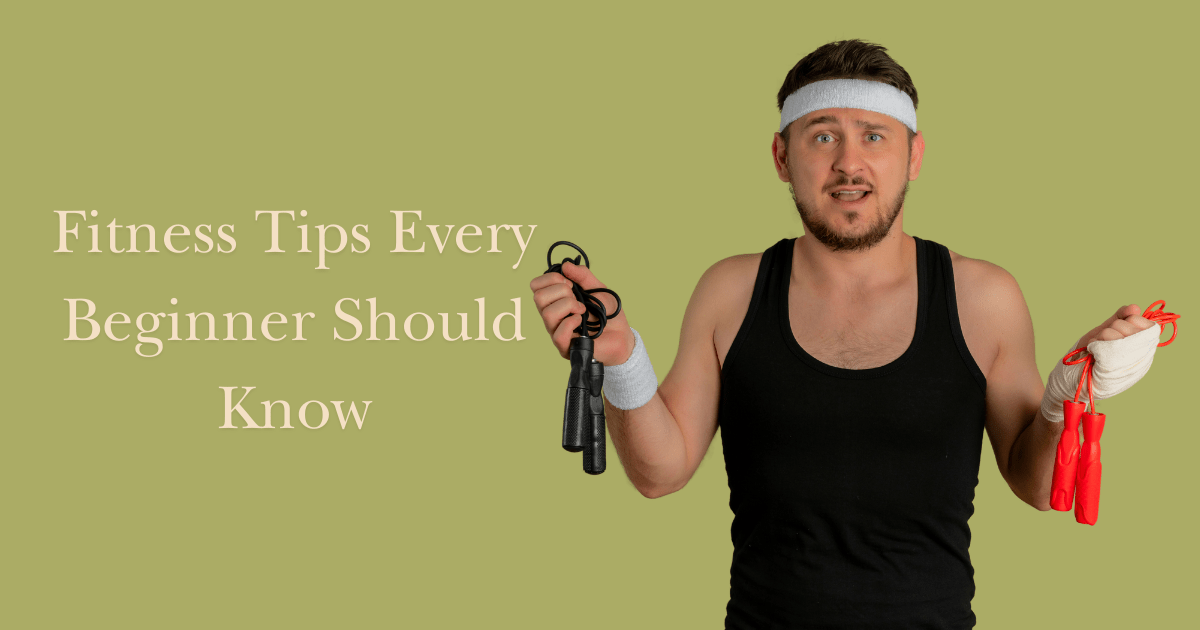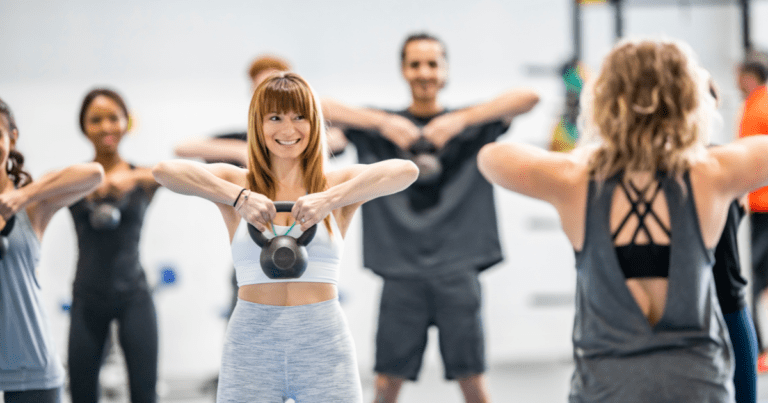Fitness is not just about looking good; it is about living a healthy and fulfilling life. Regular exercise and physical activity have numerous benefits for both your body and mind. When you prioritize fitness, you can improve your cardiovascular health, boost your immune system, increase your energy levels, and reduce stress and anxiety. Additionally, being physically fit can enhance your self-confidence and overall well-being. It is essential to understand that fitness is a lifelong journey, and as a beginner, it is crucial to lay a strong foundation by mastering the basics.

1. Setting fitness goals:
Setting attainable goals is essential before starting any fitness journey. By establishing specific objectives, you can stay focused and motivated throughout your fitness journey. Your goals should be measurable, attainable, relevant, and time-bound (SMART). For example, rather than stating, “I want to lose weight,” you could make the objective, “losing 10 pounds in the next three months.” You will have a specific goal to strive for in this manner. Remember to break down your larger goals into smaller milestones to celebrate your progress along the way.
2. Starting with a fitness assessment:
Before diving headfirst into any fitness program, it is essential to assess your current fitness level. A fitness assessment will help you understand your strengths and weaknesses, as well as identify any potential health concerns. You can consult with a fitness professional who can perform various assessments, such as body composition analysis, cardiovascular fitness tests, and flexibility tests. This information will serve as a baseline and help you tailor your workouts to your specific needs. It is important to note that everyone’s starting point is different, and it is crucial to honor your body’s capabilities.
3. Importance of warming up and cooling down:
Warming up and cooling down are often overlooked but are vital components of any exercise routine. Warming up prepares your body for the upcoming physical activity by increasing your heart rate and circulation, loosening your muscles, and enhancing your range of motion. A proper warm-up can include dynamic stretching, light cardio exercises, and mobility drills. Cooling down, on the other hand, helps your body gradually return to its resting state and prevents muscle soreness and stiffness. It is advisable to perform static stretches and slower-paced exercises during your cool-down. Remember, skipping warm-up and cool-down can increase the risk of injury and hinder your progress.
[blockquote align=”none” author=””]
For You
[/blockquote]
4. The basics of cardiovascular exercise:
Cardiovascular exercise, also known as cardio, is crucial for improving your heart health, burning calories, and increasing your stamina. As a beginner, it is essential to start slowly and gradually increase the intensity and duration of your cardio workouts. Some popular forms of cardio include brisk walking, jogging, cycling, swimming, and dancing. Strive for at least 150 minutes of moderate-to-intense cardio or 75 minutes of vigorous cardio per week. Always pay attention to your health and take pauses when necessary. Find things you enjoy doing and incorporate them into your routine, because consistency is important.
5. Strength training for beginners:
Strength training is an integral part of any well-rounded fitness program. It helps build lean muscle mass, increase bone density, improve balance and stability, and boost metabolism. As a beginner, it is crucial to start with light weights or resistance bands and focus on mastering proper form and technique. Compound exercises, such as squats, lunges, push-ups, and deadlifts, target multiple muscle groups and provide maximum benefits. Aim for at least two to three strength training sessions per week, allowing your muscles at least 48 hours of rest between sessions. As you advance, gradually increase the weight and intensity.
6. Incorporating flexibility and stretching:
Flexibility exercises and stretching play a vital role in improving your joint range of motion, reducing muscle tension, and preventing injuries. Incorporate static stretches, such as hamstring stretches, chest stretches, and quad stretches, into your post-workout routine. Additionally, consider participating in activities like yoga or Pilates, which focus on improving flexibility and core strength. Remember to breathe deeply and hold each stretch for 15 to 30 seconds without bouncing. Flexibility training should be a regular part of your fitness routine to maintain optimal mobility.
7. Importance of proper form and technique:
When it comes to exercise, proper form and technique are crucial to prevent injuries and maximize results. Take the time to learn and understand the correct form for each exercise you perform. If needed, seek guidance from a qualified fitness professional who can demonstrate the proper technique and provide feedback. Pay attention to your body alignment, engage your core muscles, and avoid any jerky or sudden movements. Remember, quality is more important than quantity. Prioritize perfecting form and starting with lighter weights before stepping up the intensity.
8. Tips for staying motivated:
Staying motivated throughout your fitness journey can be challenging, especially as a beginner. The following advice will help you:
- Set short-term goals: Break down your larger goals into smaller, achievable milestones.
- Find a workout buddy: Exercising with a friend can make your workouts more enjoyable and hold you accountable.
- Track your progress: Keep a record of your workouts, measurements, and achievements to see how far you’ve come.
- Mix up your routine: Try different types of exercises and workouts to keep things interesting and prevent boredom.
- Reward yourself: Treat yourself to non-food rewards when you reach your fitness goals.
[blockquote align=”none” author=””]Remember that motivation fluctuates, and it is normal to have off days. Be kind to yourself and focus on making exercise a habit rather than relying solely on motivation.[/blockquote]
9. Finding the right fitness routine for you:
With countless fitness options available, finding the right routine can be overwhelming. It is important to choose activities that you enjoy and that align with your goals. Experiment with different workouts, such as group classes, home workouts, outdoor activities, or sports, to find what suits you best. Consider your schedule, preferences, and fitness level when selecting a routine. It is advisable to consult with a fitness professional who can guide you based on your specific needs. Remember, there is no one-size-fits-all approach, so find what brings you joy and makes you feel good.
10. Importance of rest and recovery:
Rest and recovery are often overlooked but are essential for optimal fitness progress. When you work out hard, your body needs time to recover and rebuild. Overtraining can result in exhaustion, a decline in performance, and a higher chance of injury. It is recommended to have at least one or two rest days per week, where you engage in lighter activities or focus on stretching and mobility. Additionally, prioritize sleep and aim for seven to nine hours of quality sleep each night. Listen to your body and give it the rest it needs to come back stronger.
11. Nutrition tips for beginners:
A healthy diet is essential to achieving your fitness objectives. As a beginner, focus on building a balanced and sustainable eating plan. Include a variety of whole foods, such as fruits, vegetables, lean proteins, whole grains, and healthy fats, in your diet. Avoid restrictive diets or extreme calorie-cutting, as they are not sustainable in the long run. Instead, aim for portion control and mindful eating. Make sure to stay hydrated by consuming enough water throughout the day. If needed, consult with a registered dietitian who can provide personalized guidance based on your goals and dietary preferences.
12. Staying hydrated during workouts:
Both general health and peak performance depend on adequate hydration. During exercise, your body loses water through sweat, and it is crucial to replenish those fluids. Aim to drink water before, during, and after your workouts. The exact amount of water needed varies depending on factors such as intensity, duration, and individual sweat rate. As a general guideline, drink at least eight cups (64 ounces) of water per day, and increase your intake during intense workouts or in hot weather. Remember that thirst is not always an accurate indicator of hydration, so make it a habit to drink water regularly.
13. Common mistakes to avoid:
As a beginner, it is common to make certain mistakes when starting your fitness journey. Avoid the following common pitfalls:
- Overdoing it: Gradually increase the intensity and duration of your workouts to prevent overexertion and injury.
- Comparing yourself to others: Focus on your own progress rather than comparing yourself to others. Everyone’s fitness journey is unique.
- Skipping rest days: Rest and recovery are just as important as exercise. Observe your body and give it space to recuperate.
- Neglecting proper nutrition: Fuel your body with nutritious foods to support your workouts and overall health.
- Not seeking guidance: Consult a trained fitness expert for advice if you’re unclear about the correct form or technique in order to prevent injury.
Remember that fitness is a lifelong journey, and it’s okay to make mistakes along the way. Take their lessons to heart, adjust, and keep going.
14. Fitness resources and tools for beginners:
As a beginner, there are various resources and tools available to support your fitness journey:
- Fitness apps: There are numerous fitness apps available that offer workout routines, tracking features, and motivation.
- Online workout videos: Platforms like YouTube offer a wide range of free workout videos for all fitness levels.
- Fitness communities and forums: Joining online communities or forums can provide support, accountability, and inspiration.
- Fitness trackers: Wearable devices can help track your activity levels, heart rate, and sleep patterns, providing valuable insights into your progress.
- Fitness professionals: Consider working with a certified personal trainer or fitness coach who can provide personalized guidance and support.
Explore these resources and find what works best for you. Remember, the key is to stay consistent and make fitness a part of your lifestyle.
[blockquote align=”none” author=””]
Conclusion
It can be thrilling and difficult for a beginner to start a fitness journey. By mastering the basics and implementing these fitness tips, you can set yourself up for long-term success. Remember to prioritize your health and well-being, listen to your body, and be patient with yourself. Fitness is not a destination; it is a continuous journey. Embrace the process, celebrate your milestones, and enjoy the benefits that regular exercise and a healthy lifestyle bring. You’ll be amazed at what you can achieve if you start now.
[/blockquote]
